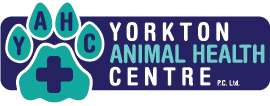Library
-
Because of differences in large and giant dogs' energy and nutrient needs, some pet foods are specifically formulated for these requirements. Adequate diet and feeding management are important for adequate growth and preventing orthopedic problems and gastric dilatation-volvulus (GDV) or bloat. Specific recommendations are included for selecting an appropriate diet for a large or giant breed dog. Feeding management recommendations are also included.
-
Because of differences in toy and small dogs' energy needs and size, it is essential to use pet foods specifically formulated for their requirements. Adequate diet and feeding management are important for proper growth and preventing excessive weight gain. Specific recommendations are included to select an appropriate diet. Feeding management recommendations for puppies and adult dogs are also included.
-
Not all puppy foods are created equally, and your large breed dog needs to be fed an appropriate diet for development. An improper balance of nutrients can lead to health problems, including bone deformities. Measuring proper calorie amounts, looking for the AAFCO statement, and controlling food intake will ensure your puppy develops properly.
-
In North America, obesity is the most common preventable disease in cats and is one of the most common overall. Almost 60% of domestic cats are overweight. Scientific evidence now reveals that fat tissue is biologically active; it secretes inflammatory hormones and creates oxidative stress on the body's tissues, both of which contribute to many diseases and a decreased quality of life. Treating obesity as a chronic, low-level inflammatory condition is the new approach.
-
Obesity is the most common preventable disease in dogs affecting up to 45% of the North American dog population. Obesity contributes to disease including diabetes, arthritis, hypertension, and cancer eventually causing a decreased lifespan. Obesity can be controlled with diet and exercise plans. Regular visits to the veterinarian for body condition assessment and weight checks are crucial to weight loss as is maintaining the recommended dietary intake.
-
Well-bred Old English Sheepdogs are placid, adaptable individuals who are loving and loyal to their chosen people. These big, lovable dogs can be just the ticket for active households whose members do not mind spending a lot of time tending the tresses of their canine companions.
-
Nobody has ever accused the Otterhound of primping and preening. She is a come-as-you-are kind of dog, with casual good looks and a laid-back personality.
-
Some over-the-counter human medications can be used for common ailments in dogs, but you must consult your veterinarian before using them to determine the correct dose and to ensure they will not interact with other medications your dog is taking. Some medications are toxic. If the condition you are treating does not respond to treatment, contact your veterinarian.
-
Obesity is the most common problem in cats in North America and leads to an increased risk of diabetes mellitus, heart disease, and several types of cancer. Extra body fat causes increased inflammation associated with osteoarthritis. Reducing inflammation and pain can help an overweight cat to regain activity, which in turn can lead to more appropriate weight loss. Obesity can be prevented or reversed when cat owners are aware of calorie intake, body condition, and improving movement or activity.
-
Obesity is a common problem in cats. It results from too many calories being eaten and not enough calories being burned. Extra body fat causes increased inflammation in the body, worsening osteoarthritis and joint disease. To prevent your cat from becoming obese, speak to your veterinarian about your cat’s calorie needs and an appropriate food for your cat's life stage. Increasing your cat's daily activity can help prevent or reverse obesity. Be aware of your cat's body condition and keep track of her weight.


